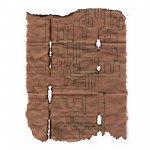Hussar
Legend
Ever feel like you've overused or abused that 'privilege'? Refined your selections to the point of pure self-service and lost track of what other plays might want in a game? Wonder if you've let brilliant players slip through your net?
Nope. Not at all.
Bit of background. I started playing on VTT in 2003 with OpenRPG. Dark ages man, dark ages.
Then, over time. This changed. I noticed that many online players didn't seem to treat the game as a priority. I'd get players showing up fifteen, twenty, thirty minutes late, no notice, no email. Or, not even show up at all. Then I had the players who would come in, spend all sorts of time creating a character, get everything just right, only to vanish into the aether the next week. On and on and on. So, my recruitment signs started to change. They went from something along the lines of come one come all, to "Look, I'm running THIS kind of game. The game starts at THIS time on THIS day. We are not interested in players who (shopping list of things). Miss three sessions without prior notice and you're uninvited."
Funny thing was, the nastier I got, the more people wanted into the games. :/
But, over the years, I finally whittled down the group to a great bunch. I've got a group of six players now and this is my longest running group (almost ten years now, with three of us bordering on 20).
I have no interest anymore in being accomodating to other people's playstyles. I don't have to be. Why should I change how I want to play to play with some stranger? Bugger that. I'd much rather sit at a table of like minded individuals. So much more fun.

